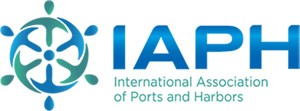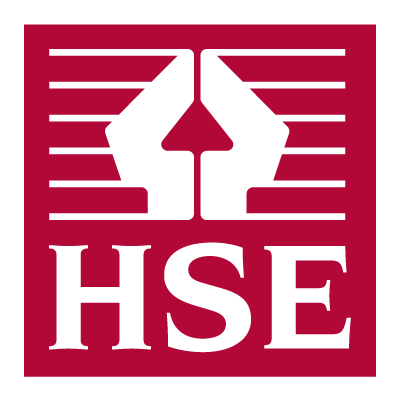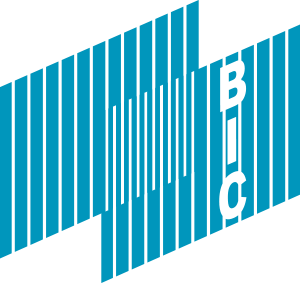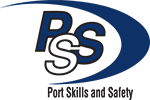Links & Partners
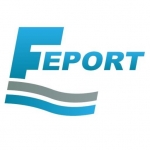
FEPORT
FEPORT groups its interests into nine broad categories: port policy, transport policy, maritime policy, security, safety and the environment, logistics, customs and internal market procedures, social policy (social dialogue) and R&D. The Federation’s objectives are: to inform and advise its members on European port-related matters, to discuss and formulate common points of view on European policy issues, to serve as an interlocutor for EU institutions and other national or international organisations and to share technical and operational know-how.
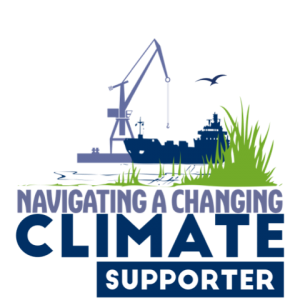
NavClimate
Through an unprecedented collaboration, the partners in PIANC’s Think Climate coalition have committed to work together to support the inland and maritime navigation infrastructure sector as they respond to climate change.
By furthering understanding, providing targeted technical support, and building capacity, the coalition’s ‘Navigating a Changing Climate’ initiative will encourage the owners, operators and users of waterborne transport infrastructure to:
- Reduce greenhouse gas emissions and shift to low carbon maritime and inland navigation infrastructure
- Act urgently to strengthen resilience and improve preparedness to adapt to the changing climate
The Maritime Anti-Corruption Network (MACN) is a global business network working towards the vision of a maritime industry free of corruption that enables fair trade to the benefit of society at large. Established in 2011 by a small group of committed maritime companies, MACN has grown to include over 100 members globally, and has become one of the pre-eminent examples of collective action to tackle corruption.
MACN and its members work towards the elimination of all forms of maritime corruption by: raising awareness of the challenges faced; implementing the MACN Anti-Corruption Principles and co-developing and sharing best practices; collaborating with governments, non-governmental organizations, and civil society to identify and mitigate the root causes of corruption; and creating a culture of integrity within the maritime community.
To manage and improve something you need a performance indicator. Smart Freight Leadership starts with calculating and reporting emissions across the global logistics supply chain. Companies that do this are better able to make informed decisions, based on relevant performance indicators, and to communicate with customers, investors and other stakeholders.
To help, we established the Global Logistics Emissions Council (GLEC) as a voluntary partnership of companies, industry associations and green freight programs, backed by governments and other stakeholders. Together, we developed the GLEC Framework for logistics emissions accounting and reporting.
Ports are nodal points in global supply chains. At the same time, they are embedded in local and regional communities. As a result, ports must respond to worldwide, regional and local challenges, such as climate change, mobility, digitalisation, migration and social integration.
On 12 May 2017 the International Association of Ports and Harbors decided to set up a World Ports Sustainability Program. Guided by the 17 UN SDGs the program wants to enhance and coordinate future sustainability efforts of ports worldwide and foster international cooperation with partners in the supply chain. The World Ports Sustainability Program builds on the World Ports Climate Initiative that IAPH started in 2008 and extends it to other areas of sustainable development.
The American Association of Port Authorities (AAPA), the European Sea Ports Organisation (ESPO), the International Association of Cities and Ports (AIVP) and the World Association for Waterborne Transport Infrastructure (PIANC) signed up as strategic partners of the World Ports Sustainability Program.
Recognized as the only international organization representing the voice of the world port industry, IAPH is granted Consultative Status as Non-governmental Organization (NGO) from five United Nations (UN) specialized agencies and one intergovernmental body.
New IAPH VISION Statement:
The Global Ports’ Forum For Industry Collaboration and Excellence.
New IAPH MISSION Statement:
Promoting the interest of ports worldwide through strong member relationships, collaboration and information-sharing that help resolve common issues, advance sustainable practices and continually improve how ports serve the maritime industries.

RPMASA
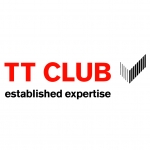
TT Club
As a mutual insurer, the TT Club exists to provide its policyholders with benefits, which include specialist underwriting expertise, a world-wide office network providing claims management services, and first class risk management and loss prevention advice.
The Club works with some of the world’s largest operators, through to companies whose activities are on a smaller scale, but face similar risks. Remarkably, in view of industry changes and consolidation, one third of the membership has chosen to insure with the Club for more than 20 years.
TT Club is managed by Thomas Miller, an independent and international provider of insurance, professional and investment services.
The Health and Safety Executive is a UK government agency responsible for the encouragement, regulation and enforcement of workplace health, safety and welfare, and for research into occupational risks in Great Britain.
The Bureau International des Containers was founded in 1933 as a neutral, non-profit, international organization whose mission is to promote the safe, secure and sustainable expansion of containerization and intermodal transportation.
Publisher of the BIC Code Register since 1970, the BIC was appointed by the International Organization for Standardization (ISO) in 1972 as the industry’s global container prefix registry, a role further endorsed by international customs conventions, and currently has over 2300 container-operating members in more than 127 countries.
Today, the BIC code is the “international calling card” of nearly every container in international trade, allowing for proper identification and facilitating the crossing of borders without delay. With a mission to promote the safe, secure and sustainable expansion of intermodal transportation, the BIC enables professional dialogue amongst its members, standards bodies, governments and other industry organizations. The BIC holds official observer status as a NGO at both the International Maritime Organization (IMO) and the World Customs Organization (WCO), and contributes regularly as an observer to the United Nations Economic Commission for Europe (UNECE) and other organizations.
Port Skills and Safety was established by the ports industry at the beginning of 2002 and has a wide remit to work with its members and other stakeholders, to encourage and promote high standards of health and safety and a highly skilled workforce.
It is recognised by Government departments and agencies, including the Department for Transport, Health and Safety Executive, Maritime and Coastguard Agency, Qualifications and Curriculum Authority, Scottish Qualifications Authority, UK Commission for Employment and Skills and the National Learning and Skills Council.
PSS is core funded through subscriptions, and is open to all port related organisations including harbour authorities, conservancies, port and terminal operators, stevedoring companies and labour supply companies. Training providers, consultants and other organisations that provide services to or work alongside port organisations may subscribe as Affiliates.
The National Maritime Safety Association (NMSA) represents the marine cargo handling industry in the United States in safety and health matters arising under various statutes, including the Occupational Safety and Health Act.
The objectives and purposes of the Association are:
- to aid, advance, assist, encourage, promote and support safety in the marine cargo handling operations;
- to monitor all federal, state, and local governmental regulatory agencies having jurisdiction over safety in marine cargo handling operations, including but not limited to the U.S. Department of Labor; U.S. Department of Health and Human Services; U.S. Coast Guard; and U.S. Department of Transportation; and to advise these agencies, as appropriate, on the views of the industry on regulations and related matters;
- to cooperate with the Bureau of Labor Statistics, U.S. Department of Labor, in the development of injury and health statistics in marine cargo handling operations;
- to act as a clearinghouse for the industry and its members in general on information necessary to help reduce the injuries and illnesses in the marine cargo handling workplace;
- to monitor legislative developments affecting safety in the marine cargo handling workplace and, when necessary, to take steps to have Congress or other legislative bodies implement sound legislative policy affecting maritime safety and related matters; and
- to initiate legal action or participate in any court or before any administrative agency in matters affecting the objectives and purposes of the Association.




